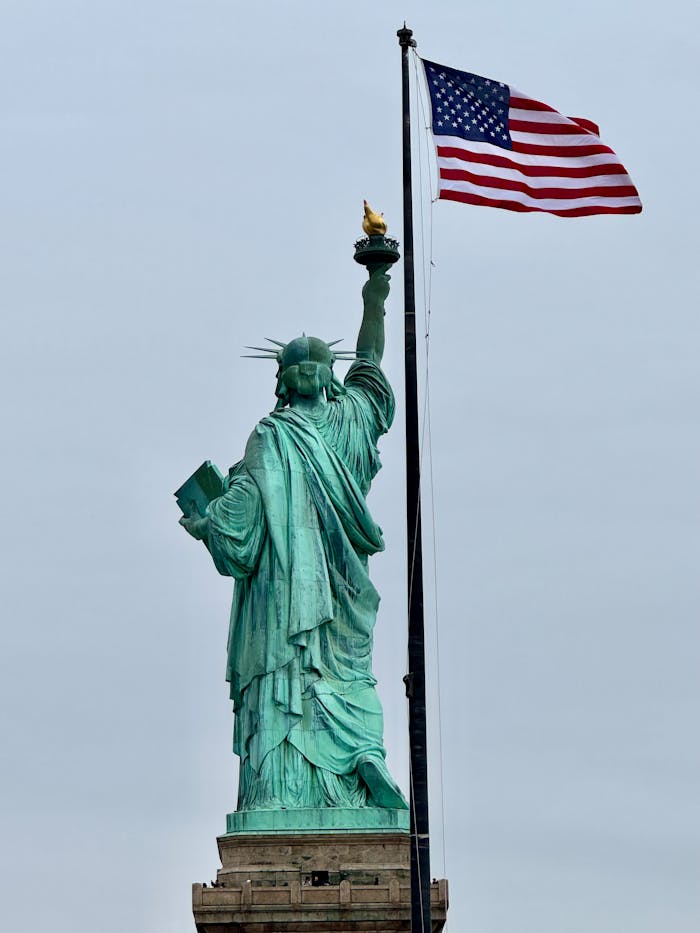If you’ve applied for a green card and your visa is about to expire — or already has — you’re not alone. Many immigrants find themselves in this exact situation and worry whether they’re violating the law or risking their application. So here’s the bottom line: you can stay in the U.S. legally after your visa expires, but only if you’ve properly filed for Adjustment of Status (Form I-485) before your authorized stay ends.
In this article, we’ll walk through what happens when your visa expires, how Adjustment of Status affects your legal presence, and what steps you need to take to avoid immigration trouble.
Visa Expiration vs. Lawful Presence: What’s the Difference?
Let’s start by clearing up a common confusion:
- Visa Expiration: The date on your visa stamp in your passport. It indicates the last day you can use that visa to enter the U.S.
- Authorized Stay: This is the actual time period you’re allowed to remain in the U.S., determined by the I-94 Arrival/Departure Record issued when you entered.
You might have a visa valid for 5 years, but if your I-94 says “Duration of Status” or sets a specific end date, that’s the timeline you must watch.
If your I-94 expires before you file your I-485, you could fall out of legal status and start accruing unlawful presence, which may lead to penalties like a 3-year or 10-year reentry bar.
What Is Adjustment of Status?
Adjustment of Status (AOS) is the process of applying for lawful permanent residence (a green card) without leaving the U.S. It’s available to certain immigrants who are already in the U.S. on a valid visa — most commonly spouses of U.S. citizens, employment-based visa holders, and asylum grantees.
To apply, you must file Form I-485 and meet all eligibility criteria.
So, Can You Stay After Your Visa Expires?
Yes — but with an important condition.
If you file Form I-485 before your authorized stay expires, you are legally allowed to stay in the U.S. while USCIS processes your application. This is because once USCIS accepts your I-485, you enter what’s known as a “period of authorized stay.”
This status is not the same as being in a visa status (like F-1, B-2, or H-1B), but it does mean that you are lawfully present and protected from removal while your green card application is pending.
What If You Filed After Your Visa Expired?
This is where things get tricky.
- If you’re married to a U.S. citizen, you may still be able to adjust status even if you overstayed your visa. USCIS allows certain immediate relatives to file I-485 even after falling out of status.
- If you’re married to a green card holder or applying through employment, overstaying your visa can disqualify you from adjusting status inside the U.S.
In short: The rules are more forgiving for immediate relatives of U.S. citizens.
What Happens to Unlawful Presence?
Unlawful presence begins when you stay in the U.S. past your authorized stay without filing a valid petition or extension. Here’s what to know:
- 180+ days of unlawful presence → 3-year ban from reentering the U.S.
- 365+ days of unlawful presence → 10-year ban
However, once you file Form I-485, unlawful presence stops accumulating, even if your original visa has expired. You are not accruing new unlawful presence during the period USCIS is reviewing your case.
What If Your Application Is Denied?
If USCIS denies your Form I-485 and your underlying visa status has already expired, you immediately become removable (deportable). You may be issued a Notice to Appear in immigration court.
This is why it’s critical to:
- Ensure your I-485 is properly filed
- Submit all supporting documentation
- Respond promptly to RFEs (Requests for Evidence)
If you’re concerned about your case or eligibility, it’s wise to consult with an immigration attorney early.
Can You Work or Travel While Waiting?
Not automatically.
To work legally, you must file Form I-765 (Employment Authorization) with your I-485. Once approved, you’ll get an EAD card, which allows you to work while your green card is pending.
To travel, file Form I-131 (Advance Parole). If you leave the U.S. without this, your I-485 will be considered abandoned, and you’ll have to start over from outside the country.
Tips to Stay in Good Standing
- File your I-485 before your visa or I-94 expires. This locks in your eligibility.
- Apply for a work permit and travel document at the same time (Forms I-765 and I-131).
- Keep records of your submission date, USCIS receipts, and any notices.
- Monitor your case online via the USCIS Case Status Tracker.
- Avoid unauthorized work or overstays beyond the filing window — even a few days can trigger issues.
FAQs
Can I stay in the U.S. after my tourist visa expires if I marry a U.S. citizen?
Yes — if you marry a U.S. citizen and file Form I-485 before removal proceedings begin, you may stay while your case is reviewed.
What if my visa expired and I didn’t file anything?
You are likely out of status and accruing unlawful presence. Seek legal advice immediately.
Can I file I-485 after my visa expires?
Only if you qualify as an immediate relative of a U.S. citizen. Other categories usually require lawful status at the time of filing.
What’s the difference between “visa expired” and “status expired”?
Your visa is for entry. Your status (via Form I-94) determines how long you can legally stay.
Final Thoughts
Yes, you can remain in the U.S. after your visa expires — but only if you’ve filed Form I-485 before your authorized stay ends. Adjustment of Status provides a legal bridge that allows you to stay and work in the U.S. while waiting for your green card. Just don’t assume you’re safe if your visa expires without taking the proper steps. Immigration law is complex, but timely filing and accurate paperwork can protect your future.



